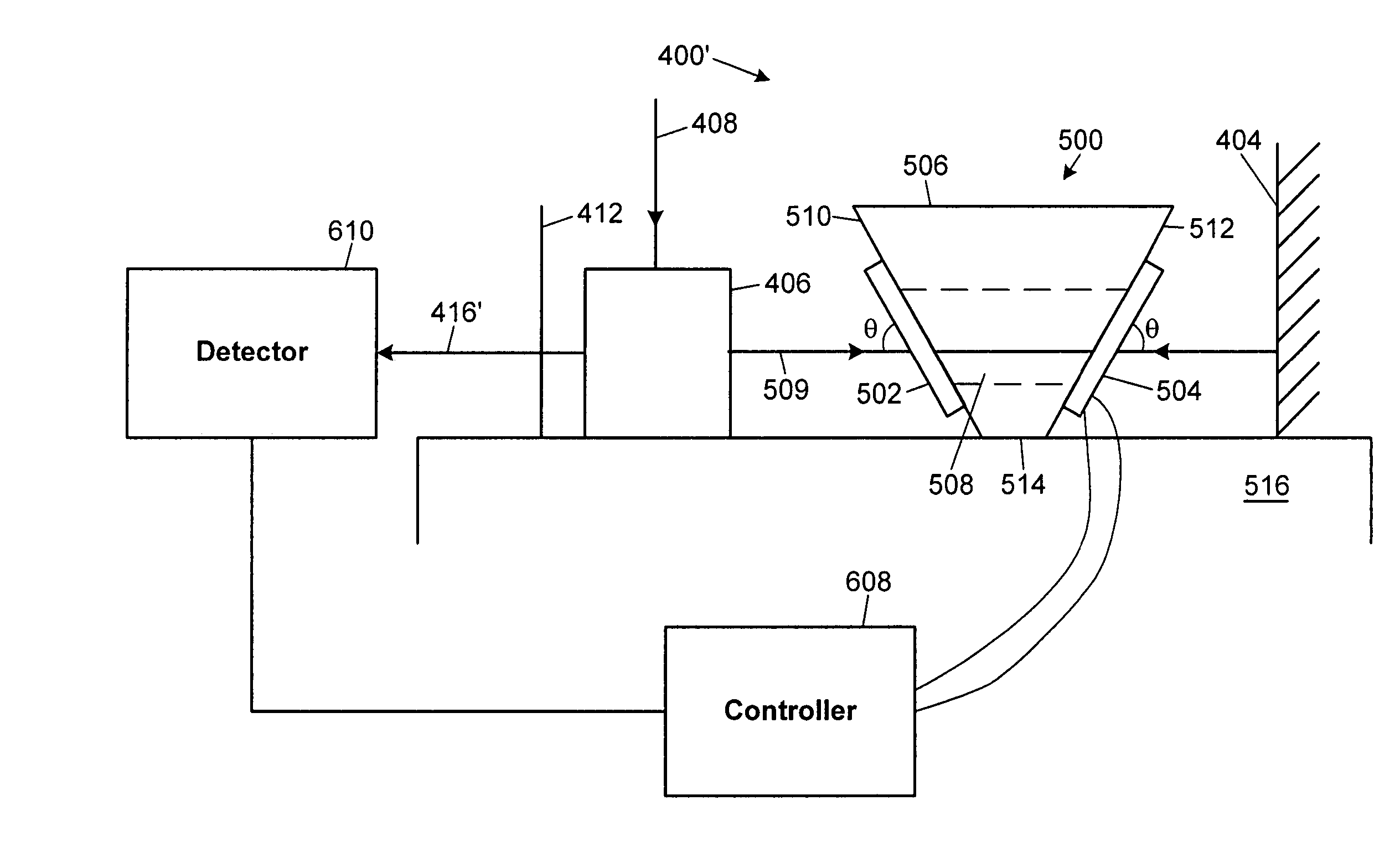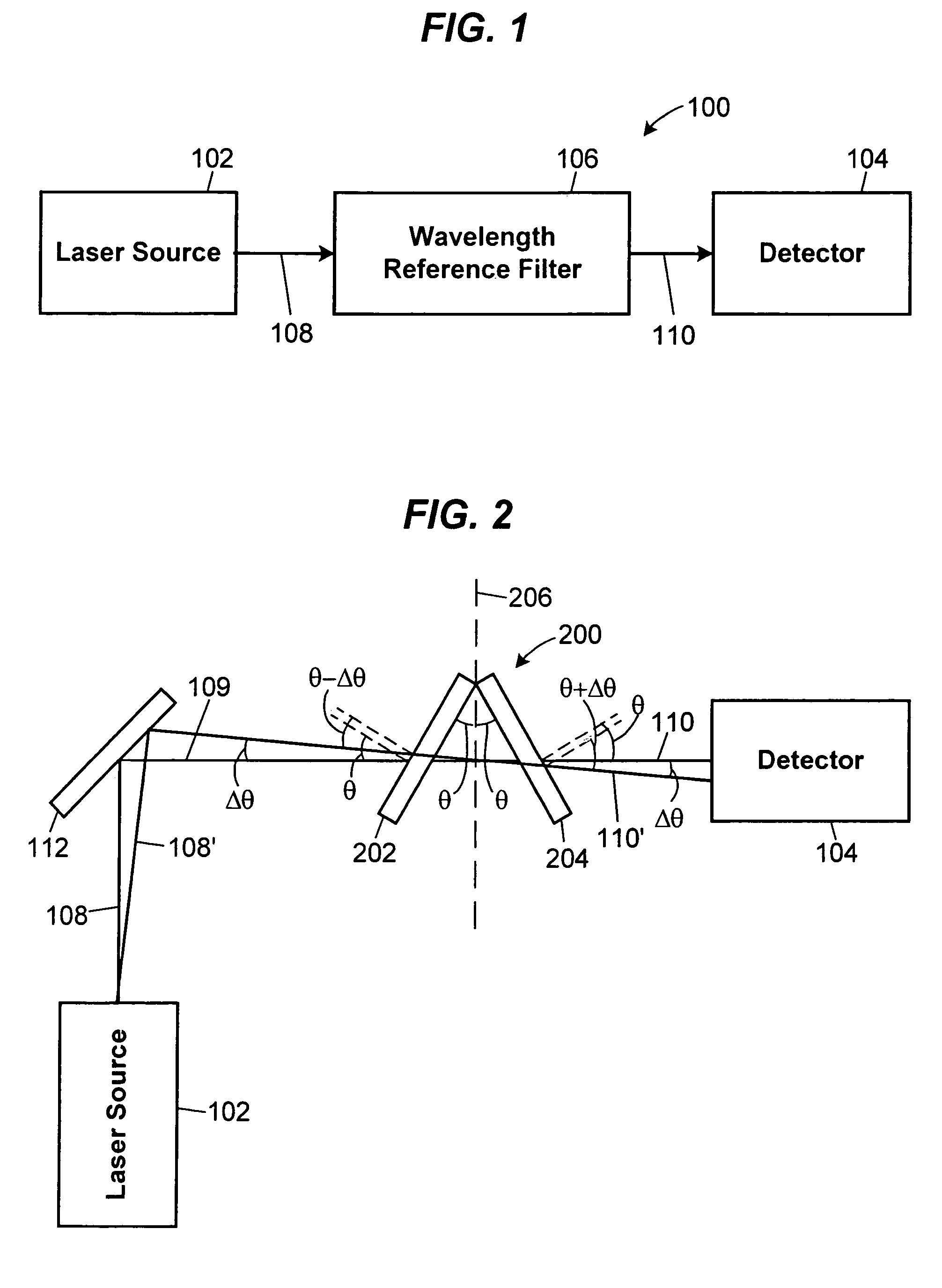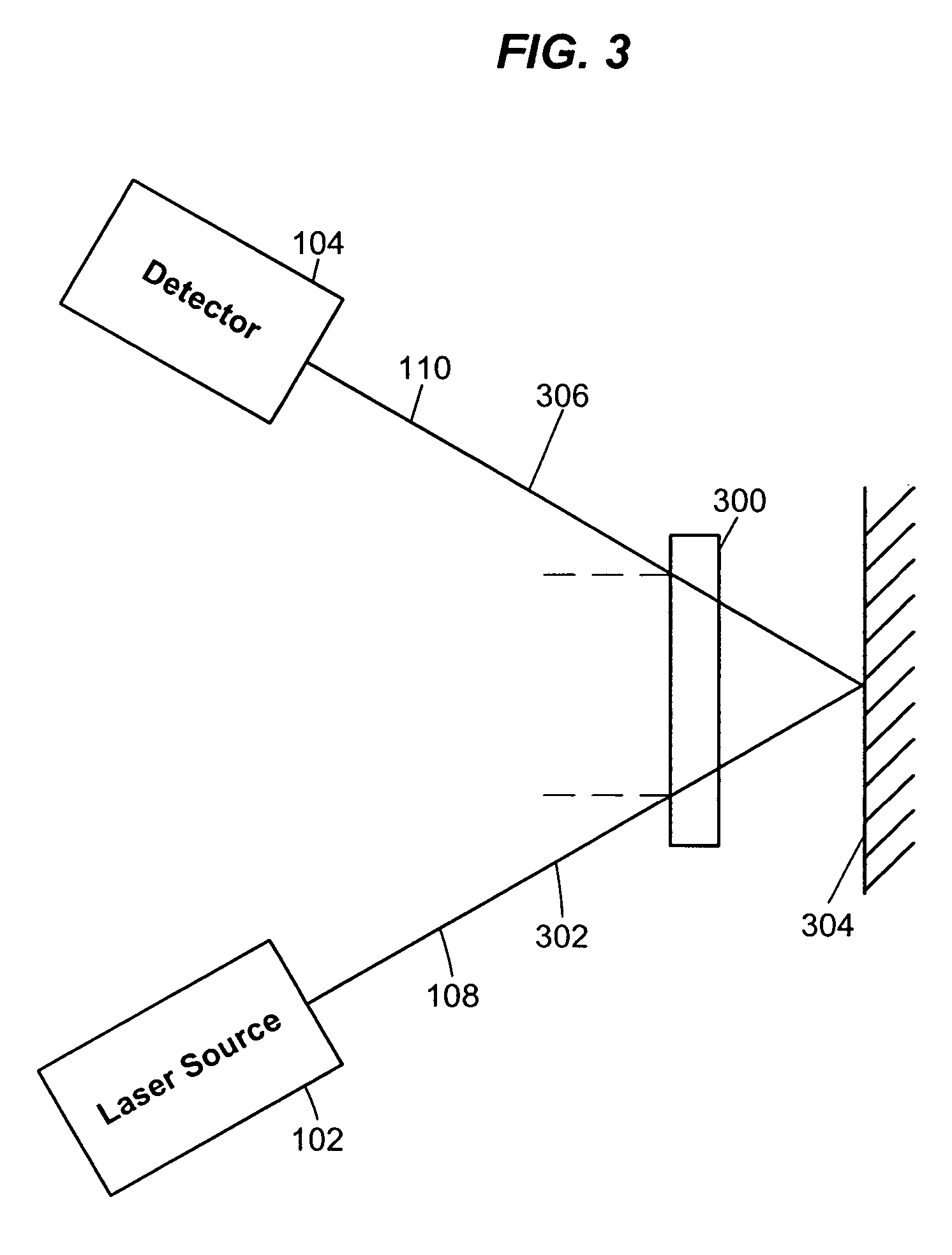Wavelength reference filter
a wavelength reference filter and wavelength reference technology, applied in the field of laser sources, can solve the problems of lasers designed for stability and predictability that can in fact produce inaccurate output frequencies over the device lifetime, lasers that fail to produce acceptable output bandwidth and power levels, and etalons may introduce a relatively low but nevertheless detrimental error in laser source operation
- Summary
- Abstract
- Description
- Claims
- Application Information
AI Technical Summary
Problems solved by technology
Method used
Image
Examples
Embodiment Construction
[0016]FIG. 1 illustrates an optical system 100 that may be used as a wavelength reference device, or wavelength locker. The system 100 includes a laser source 102 coupled to a detector 104. The system 100 may be used as a detector alone or as a laser source, for example, a tunable laser device with a detector for wavelength control and / or output power regulation. Example laser sources include solid state, gas, chemical, and fiber lasers. Diode lasers are commonly used in communication networks. More generally, the laser source 102 may represent other sources of an optical signal including a waveguide, fiber, free space region or lens. The detector 104 may measure frequency, amplitude, or any other metric useful to characterize an optical signal.
[0017]A wavelength reference apparatus 106 is positioned between the laser source 102 and the detector 104. The wavelength reference apparatus 106 is essentially independent of angle of incidence. As such, the incidence angle of an input beam...
PUM
 Login to View More
Login to View More Abstract
Description
Claims
Application Information
 Login to View More
Login to View More - R&D
- Intellectual Property
- Life Sciences
- Materials
- Tech Scout
- Unparalleled Data Quality
- Higher Quality Content
- 60% Fewer Hallucinations
Browse by: Latest US Patents, China's latest patents, Technical Efficacy Thesaurus, Application Domain, Technology Topic, Popular Technical Reports.
© 2025 PatSnap. All rights reserved.Legal|Privacy policy|Modern Slavery Act Transparency Statement|Sitemap|About US| Contact US: help@patsnap.com



